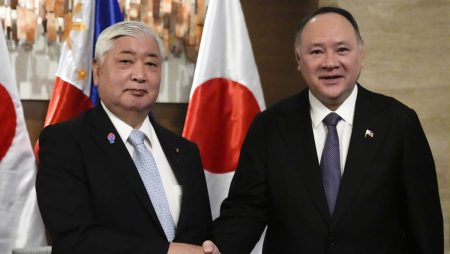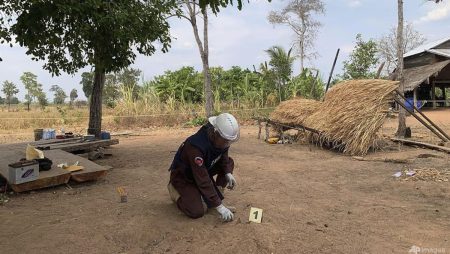South Korean President Yoon Suk Yeol is currently navigating a precarious political landscape, facing potential impeachment following a controversial declaration of martial law on December 3. Opposition lawmakers have accused him of breaching his constitutional duties and likened his actions to treason. In response to widespread backlash, Yoon rescinded the martial law declaration shortly before dawn on December 4. This swift reversal occurred after the opposition-controlled parliament overwhelmingly rejected his attempts to suppress political activities and impose media censorship, raising further questions about his governance and the increasing tensions between the ruling and opposition parties.
The legal framework for impeachment in South Korea is outlined in the constitution, which allows parliament to initiate an impeachment motion against the president or other high-ranking officials accused of constitutional or legal violations. For such a motion to progress, it requires a two-thirds majority vote in the National Assembly, which is currently a single chamber. In comparison, impeaching other government officials necessitates only a simple majority. If an impeachment motion is passed, the Constitutional Court subsequently conducts a trial based on evidence presented by parliament to ascertain whether the president indeed violated any laws during their official duties.
Currently, the political dynamics in the National Assembly favor the opposition, led by the Democratic Party, which has been vocal in its intentions to impeach Yoon. Although they command a considerable bloc of 192 seats within the parliament, they remain shy of the 200-seat threshold needed for a successful impeachment motion. This slim margin leaves the Democratic Party exploring potential alliances with smaller opposition parties to consolidate their votes. Yoon’s ruling People Power Party has also witnessed fractures, with some members expressing dissent towards the presidential decision to declare martial law. However, it remains uncertain how many may support the opposition in a formal vote.
Yoon’s recent troubles have been compounded by ongoing investigations related to a scandal involving his wife, which has already attracted public and media scrutiny. This scandal has intensified calls for impeachment and a thorough investigation into his administration’s conduct. The confluence of these factors creates a challenging environment for Yoon as he contends with opposition agitation and the potential discontent within his own party. The implications of the martial law declaration and its subsequent repeal are profound, likely influencing public opinion and possibly swaying legislative decisions.
The landscape surrounding President Yoon’s administration underscores broader issues within South Korean politics, including the complex relationship between governing parties and opposition forces. The urgency of the current situation can be traced back to the rapidly shifting public sentiments across the political spectrum, especially in light of recent contentious decisions made by Yoon’s government. The prospect of impeachment looms large, representing not only a challenge for Yoon but also a potential pivot point for the Democratic Party, which seeks to solidify its authority and leverage the current political climate to its advantage.
As developments unfold, the situation remains fluid, with the threat of impeachment serving as a critical reminder of the delicate balance between power and accountability in South Korea’s democracy. The stakes are high for both Yoon and the opposition as they navigate this fraught political landscape—where actions taken today could define the trajectory of governance in the nation for the foreseeable future. The outcome of this political standoff may ultimately hinge on public opinion, party dynamics, and the ability of lawmakers to unite or fracture in response to the ongoing crisis.










